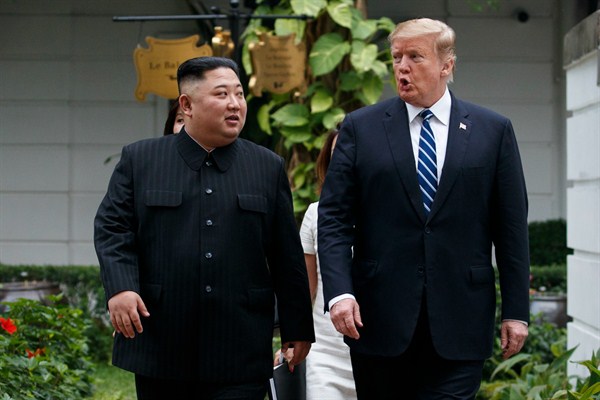The world was riveted this week by the meeting in Hanoi between U.S. President Donald Trump and North Korea’s Kim Jong Un. Last year’s initial summit between the two leaders in Singapore created nearly giddy hope for an end to the longstanding hostility between the United States and North Korea, particularly the resolution of the thorniest issue of all: North Korea’s nuclear weapons and ballistic missile program. But a true breakthrough in Vietnam was always unlikely for one pressing reason: Americans persistently fail to understand how Kim sees the world, instead treating him as they want him to be, rather than as he really is.
So it shouldn’t have come as much of a surprise that talks broke down and both sides abruptly walked away from the two-day summit, issuing contradictory explanations of how disagreements over sanctions relief derailed the negotiations.
Before Trump even got to Hanoi, his Twitter feed, as always, provided a window into his thinking. In a Feb. 24 tweet, Trump asserted that “Chairman Kim realizes, perhaps better than anyone else, that without nuclear weapons, his country could fast become one of the great economic powers anywhere in the World.” Reflecting Trump’s tendency to see politics in terms of financial gains and losses, he assumed that Kim is a normal political leader who wants increased national prosperity to bolster his support inside North Korea. Given that assumption, the Trump administration reportedly planned to encourage Kim to emulate communist Vietnam, combining controlled economic reform with more cordial relations with the United States.

